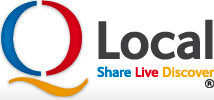The NHS is set to roll out the first ever targeted treatment for brain tumours in children and young people in England, which can be taken at home and has been shown to significantly slow the progression of the disease, allowing them a better quality of life for longer.
Dabrafenib with trametinib has been found to stop the disease progressing for more than three times as long as standard chemotherapy for children with low-grade gliomas that have a specific genetic mutation, while helping many be spared the harsh side effects that can come with chemotherapy.
The treatment will be available on the NHS in the coming months for young people aged 1-17 with low-grade or high-grade gliomas that have a BRAF V600E mutation, following a green light from the National Institute for Health and Care Excellence (NICE) today [Wednesday 24 April] .
The combination treatment, which is given at home rather than in hospital, works by targeting the proteins made by the altered BRAF gene that are responsible for uncontrollable tumour growth.
Gliomas grow in the brain or spinal cord and can be low-grade, where tumours grow slowly, or high-grade, where they grow more rapidly and can often be fatal.
Around 150 children are diagnosed with low grade gliomas every year in the UK and around 30 are diagnosed with high grade gliomas – and up to one fifth have a mutation in their BRAF gene which makes the tumours more resistant to chemotherapy.
Clinical trials have shown that as well having fewer side-effects than chemotherapy, the treatment stalled growth of low-grade gliomas for around two years (24.9 months) on average – over three times as long as standard chemotherapy (7.2 months).
Dabrafenib (Finlee ®) is given as dissolvable tablets which are taken twice a day and trametinib (Spexotras ®) is an oral solution which is taken once a day.
Aaliyah, 12, whose brain tumour was found during a routine eye appointment and has been taking dabrafenib and trametinib as part of a trial at Great Ormond Street Hospital, said: “I’m able to just take tablets twice a day and go to the hospital every few months, rather than be in hospital to have chemotherapy. I’ve been able to start secondary school with my friends and go to pretty much all my lessons. I’ve also been able to be at home, rather than staying in hospital for treatment, and carry on my hobbies such as majorette.
“I’m really pleased that other teenagers and children will now be able to have this treatment instead of chemotherapy, without needing to be part of a trial, it will make a real difference.”
Professor Peter Johnson, NHS National Clinical Director for Cancer, said: “It is fantastic news that this new and kinder precision treatment for children and young people with this type of brain tumour will now be available on the NHS – it is a significant step forward in treatment that has been shown to be easier to take than chemotherapy and very effective in blocking the growth of the disease, helping children have a better quality of life for longer.
“It can also be taken at home, meaning children and teenagers can spend less time in hospital having treatment and more time with their loved ones and doing things they enjoy – this is just the latest example of our efforts to make more effective treatments available for patients to improve the lives of those facing cancer, like Aaliyah.”
Suki Sandhu, who lost her eight-year-old son Raj to a high-grade glioma in 2018, said: “I am so pleased this drug has been approved the use on the NHS. Many years ago, I had to make the decision to stop chemotherapy treatment for my son as he was suffering with horrible side effects after years of harsh treatment. It was one of the hardest decisions I have ever had to make as it was a clear sign we were running out of options, and it was likely I would lose him.
“We need kinder drugs and new treatments for those with brain tumours like this treatment and I am hopeful other families will go on to get access to these drugs and, hopefully, remain disease-free for longer and live good quality lives.”
Helen Knight, director of medicines evaluation at NICE, said: “Diagnosis of a glioma brain tumour, which is often fatal for people with advanced high-grade glioma, can have a devastating impact on children and their families. Treatment options are limited, and we know they can be brutal. I am pleased we can recommend this new combination therapy that can give children longer without their tumour growing and offers them and their families a better quality of life.”
Dr Michele Afif, Chief Executive at The Brain Tumour Charity, said: “We are delighted that NICE has approved the first new treatment for paediatric brain tumours in decades. Though this will only affect a small population, it’s of huge significance to them and their loved ones and represents real progress. We hope that this will be the first of many new treatments that will ensure our community can live longer and better lives.”
Marie Andrée Gamache, Country President, Novartis UK and Ireland, said: “We are humbled to be part of international scientific community effort in developing targeted therapies based on the unique genetic features of a patient’s tumour and welcome NICE decision to make the treatment available for patients in England and Wales. This recent appraisal is an example of how we can address the biggest clinical and public health challenges in the UK through collaboration and make the progress that’s needed for patients to benefit most.”
|
|
||||||
Check Todays Deals on Ebay.co.uk Your Comments:
Custom Search

|
You are in:
UK /
Arnold / East Midlands
Find any Town in the UK, or Use UK map Local Google MAP for Arnold Check Todays Deals On Amazon.co.uk Check Todays Deals on Ebay.co.uk 


 Be Seen - Advertise on Qlocal Corporate Sponsors
Southport Piano and Music Academy Washroom Services Maximum Grounds Maintenance Southport Garden Services Ormskirk Garden Services Sanitary Bins Nappy Bins & Waste Disposal Confidential Shredding Services Legionella Risk Testing London Washroom Services Croydon Washroom Services Hounslow Washroom Services Wandsworth Washroom Services Havering Washroom Services Sanitary Bins London Clinical Waste London General Waste London Legionella Testing London Shredding London Tatoo Waste London Preston Bird Control Blackpool Bird Control
UK, Local Online News Community, Forums, Chats, For Sale, Classified, Offers, Vouchers, Events, Motors Sale, Property For Sale Rent, Jobs, Hotels, Taxi, Restaurants, Pubs, Clubs, Pictures, Sports, Charities, Lost Found
arnold,
arnold News,
|
|||||




 Reply With Quote
Reply With Quote